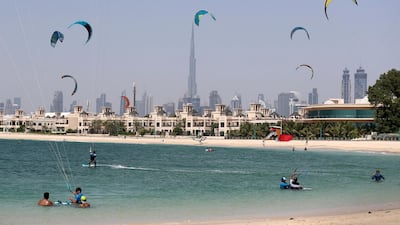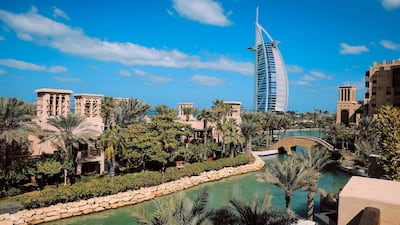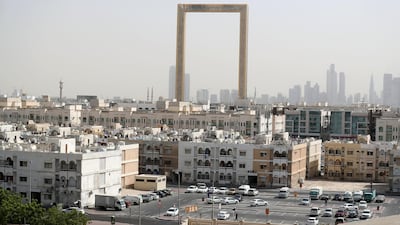On Wednesday, Dubai launched a remote-working programme to encourage professionals employed by overseas companies to relocate to the emirate. Applicants will be eligible to obtain all of the services available to ordinary residents, including phone and internet connection, schooling for their children, 100 per cent tax exemption on their incomes and, of course, a distinctive lifestyle.
The scheme has the potential to provide the local economy with an important revenue stream. But more profoundly, it could have a lasting impact on the way people choose to work and live their lives. In other words, for millions of people, where they live and work in the future could become entirely independent considerations.
Dubai's scheme reflects a fundamental understanding of the ongoing digital push in today's workplace – in a way forced on people and organisations across sectors around the world by the onset of Covid-19. Indeed, one of the more consequential ways in which the pandemic has upended people's lives, particularly those fortunate enough to keep their jobs, is how and where they work.
The concept of working from home is not new. The International Labour Organisation estimates that 7.9 per cent of the world’s workforce – or 260 million people – were doing so on a permanent basis prior to the pandemic. But over the past several months, this idea has had to be extended to the broader working population in almost every country, in order to reduce the spread of infection. In the process, this arrangement has helped to raise individual and organisational efficiencies on a much larger scale and improved work-life balance for millions – made possible, of course, by the availability of an array of technologies that facilitate “WFH” and remote interactions.
The remote-working scheme could essentially make this arrangement a permanent way of life for many. It is, however, yet to be seen whether working from home will become the norm in every profession. While the information technology and banking sectors might continue this arrangement, some sectors, such as the creative industries, are likely to prefer having personal interaction and collaboration within designated office spaces.
Similar programmes have been offered by a host of other countries in recent months, from Barbados in the Caribbean to Estonia in the Baltic region to Georgia in the Caucasus and Croatia in the Balkan Peninsula. But Dubai’s initiative could further cement the emirate’s status as a global business hub at a time of great change across the Middle East and North Africa.
According to MAGNiTT, a data platform for the Mena investment and start-up community, $659 million of capital was invested in the region during the first half of 2020. The figure is set to hit $1 billion by the end of the year, with Dubai potentially drawing a significant part of that investment. It is, after all, a place where entrepreneurs and thought leaders meet and interact with one another.
But Dubai is not just an ideal city to work and do business. It is also a good place for people to lead safe, secure and stable lives. Its advanced road, rail, telecommunications and internet infrastructure are the other obvious benefits. And it is conveniently located for people living in the East and West.
Work is, by its very nature, at the centre of any strong economy. The pandemic has shifted that engine of growth, for many sectors, away from the office, creating a special emphasis on where one makes a home. As generations of residents from around the world will attest, there are few homes safer, more dynamic and more forward-looking than those provided by the UAE.









